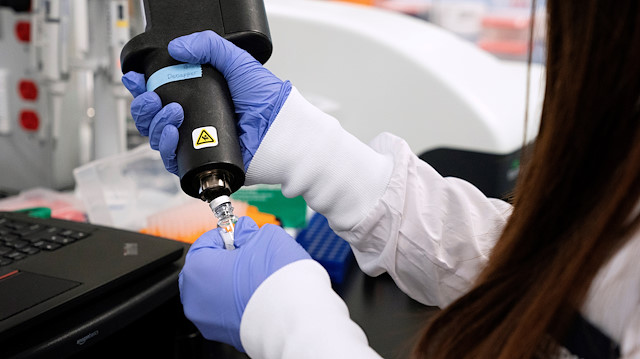
Animal trials to start this week, with human trials on all ages to begin as early as next month
Researchers at Oxford University are developing a coronavirus vaccine, aiming to have it ready by the end of the year, with a safety trial on humans as early as next month, according to British daily The Guardian.
The university’s team is led by Dr. Sarah Gilbert, who leads the Jenner Institute’s influenza vaccine and emerging pathogens program. The vaccine will be known as ChAdOx1.
Oxford’s vaccine will start animal trials next week. For human trials, the university will recruit people of all ages, but will focus on older people who are most vulnerable to the coronavirus and less responsive to vaccines due to their weak immune systems.
Dr. Adrian Hill, the director of the Jenner Institute at Oxford, said: “We are conscious that a vaccine is needed as soon as possible and certainly by June-July, when we expect a big peak in mortality.”
“This is not a normal situation. We will follow all standard trial safety requirements, but as soon as we have a vaccine that’s working, we anticipate there will be an accelerated pathway to get it deployed to save lives. The more vaccine we can provide sooner, the better.”
Both the U.K. and U.S. experts have said they expect a vaccine to be ready within 12 to 18 months. Vaccines are being developed around the world, especially in the U.S., Germany, and China.
Last Tuesday, Oxford University announced that its infectious disease experts were also providing evidence to the U.K. and European governments for a coronavirus mobile app for instant contact tracing.
Dr. Christophe Fraser, who works at Oxford University’s Big Data Institute said: “Our analysis suggests that almost half of coronavirus transmissions occur in the very early phase of infection, before symptoms appear, so we need a fast and effective mobile app for alerting people who have been exposed.”
“The instant mobile app concept is very simple. If you are diagnosed with coronavirus, the people you’ve recently come into contact with will be messaged advising them to isolate. If this mobile app is developed and deployed rapidly, and enough people opt-in to use such an approach, we can slow the spread of coronavirus and mitigate against devastating human, economic and social impacts,” he said.
The novel coronavirus known as COVID-19 emerged in Wuhan, China last December, and has spread to at least 163 countries and territories. The World Health Organization declared the outbreak a pandemic.
Out of more than 245,000 confirmed cases, the death toll now exceeds 10,000, and over 86,000 have recovered, according to data compiled by Johns Hopkins University in the U.S.
Despite the rising number of cases, most who become infected suffer only mild symptoms and recover.


